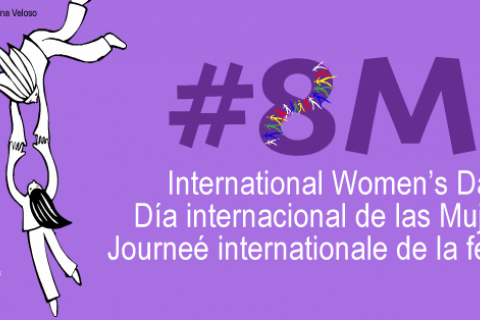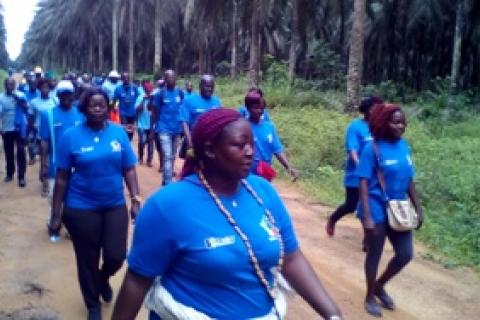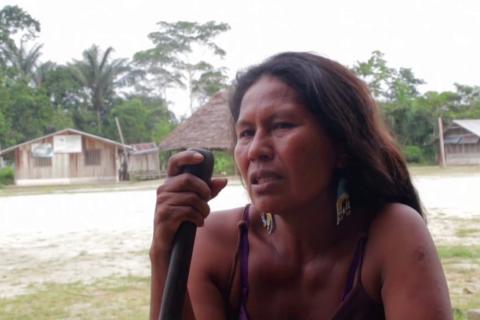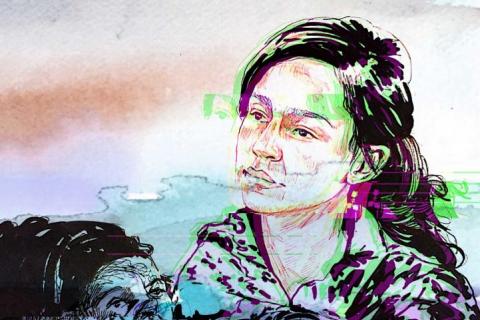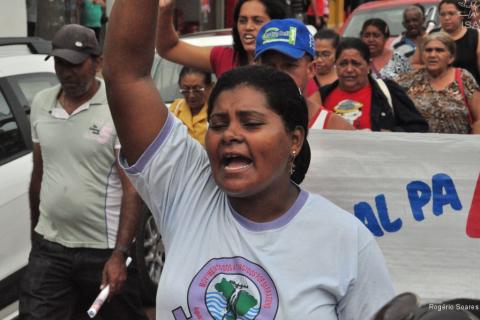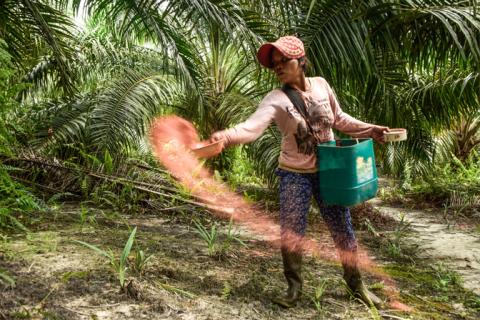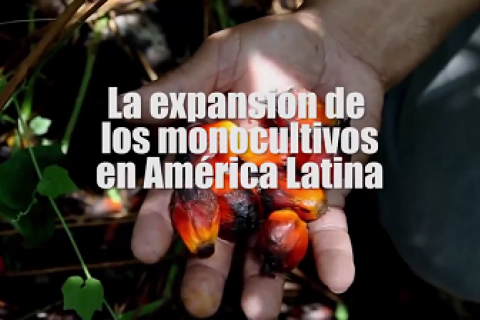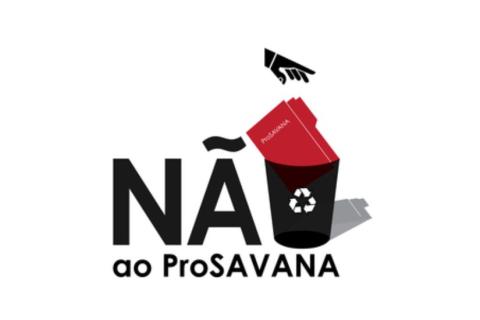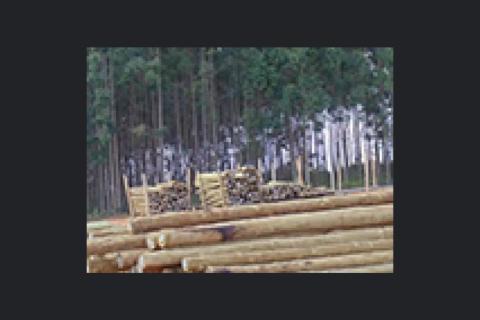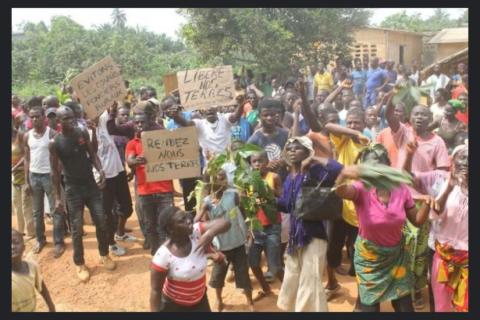On the 8th of March2018, International Women’s Day, we from the World March of Women, diverse women from all peoples, races and ages, come together once again to reaffirm that we will keep marching until we are all free from all the oppression from the patriarchal, capitalist and colonial system; we will continue to use our feminism as a way of life, and the streets as the space to amplify our demands.
Other information
The sixth and latest issue of the magazine “Trait d’Union“, a trimestral magazine and liaison of the associations of populations surrounded by oil palm plantations from SOCAPALM, workers’ unions and oil palm planters, was released. The magazine shares over 15 relevant articles highlighting different aspects of the struggles surrounding these oil palm plantations in Cameroon. This time, we want to emphasize two articles:
An audiovisual production made in indigenous Shiwiar territory in the Ecuadorian Amazon exposes the reality and resistance of peoples against the extraction of common goods, and in particular the struggle of women as givers of life and defenders of the land and water.
Watch the video in Spanish at: http://www.radiotemblor.org/?p=10579
The Transnational Institute’s State of Power 2018 report highlights three interviews with women activists who have displayed incredible courage, determination and creativity to confront corporate power and state violence.
The Movement of Dam-Affected peoples in Brazil (MAB, by its Portuguese acronym) warns that the construction of dams affects women more intensely, and that it is women whose rights are more brutally violated. A well-known tragedy is the incentive for prostitution and trafficking of women—problems which take place with companies' complicity.
A video from the Center for International Forestry Research shows a day of Magdalena Pandan, a 35-year-old oil palm plantation worker in West Kalimantan, Indonesia, who rises before dawn every day to carry out her duties toward her job, her family and her crop lands.
(Only available in Spanish). Documental sobre la expansión de monocultivos de palma aceitera y piña en América Latina, realizado por Aldo Santiago, periodista mexicano independiente, y Claudia Ramos, integrante de la organización Otros Mundos A.C./Amigos de la Tierra México. Duración: 35 minutos. Idioma: Español.
The Sengwer are indigenous people who live in the Embobut forest in the Cherangani Hills in Kenya. Since British colonial rule, the Sengwer have been evicted from their homes. Now, these violent evictions are taking place in the name of conservation, to protect the forests, and to address climate change. The European Union is funding a new six-year project: the Water Towers Protection and Climate Change Mitigation and Adaptation Programme. In 2016, the Sengwer appealed to the EU to respect their rights to live in the forest.
Almost five decades after their planting began, eucalyptus plantations have become the main cause of the deterioration of water resources in the semi-arid region of Minas, says technician Walter Viana, head of Environmental Monitoring at the Northern Minas Environment and Sustainable Development Commission, and author of a thesis on desertification in the region. As a measure to combat the water shortage that the growth of eucalyptus causes, environmentalists defend the prohibition on new plantings in the region. Read the article (in Portuguese) here:
Three villages in Côte d’Ivoire were informed in 2015 that the government had granted a concession covering a total of 11 thousand hectares to Compagnie hévéicole de Prikro (CHP), the Ivorian subsidiary of the Belgian corporation Société d’investissement pour l’agriculture tropicale (SIAT), for establishing an industrial rubber tree plantation. A recent report from the NGO GRAIN recounts the communities’ on-going struggle for recuperating their land.
The latest issue of the African biodiversity Network (ABN) Newsletter highlights the processes that participants of the 2017 Biennial Partner meeting in Nanyuki, Kenya followed to analyse and reflect upon the actions of the network over the previous two years. The newsletter also includes a reflection on Kenya’s new ban on manufacture, use, importation and sale of plastic bags as well as an article on a primary eco-school in Benin which places endogenous knowledge at the front of education. Access the newsletter (in English) here: http://africanbiodiversity.org/abn-news-07/
